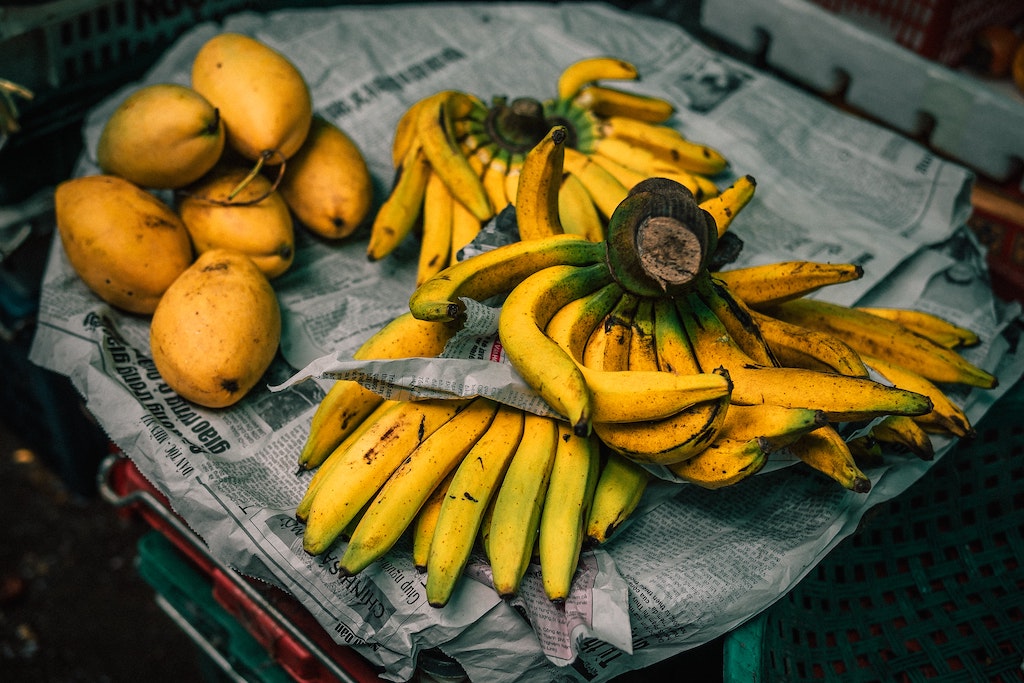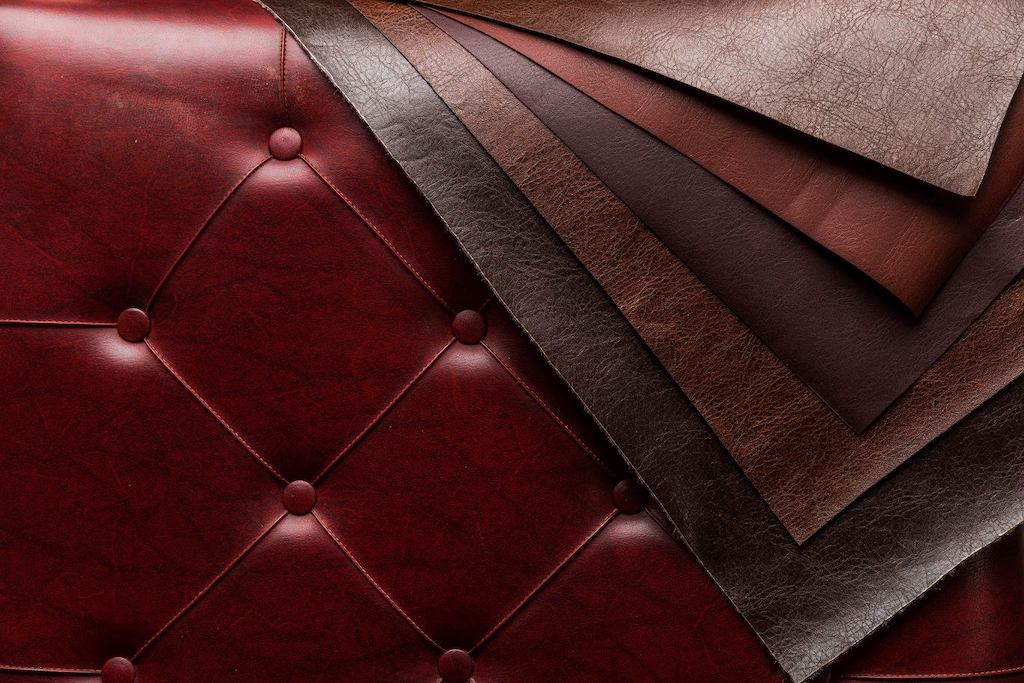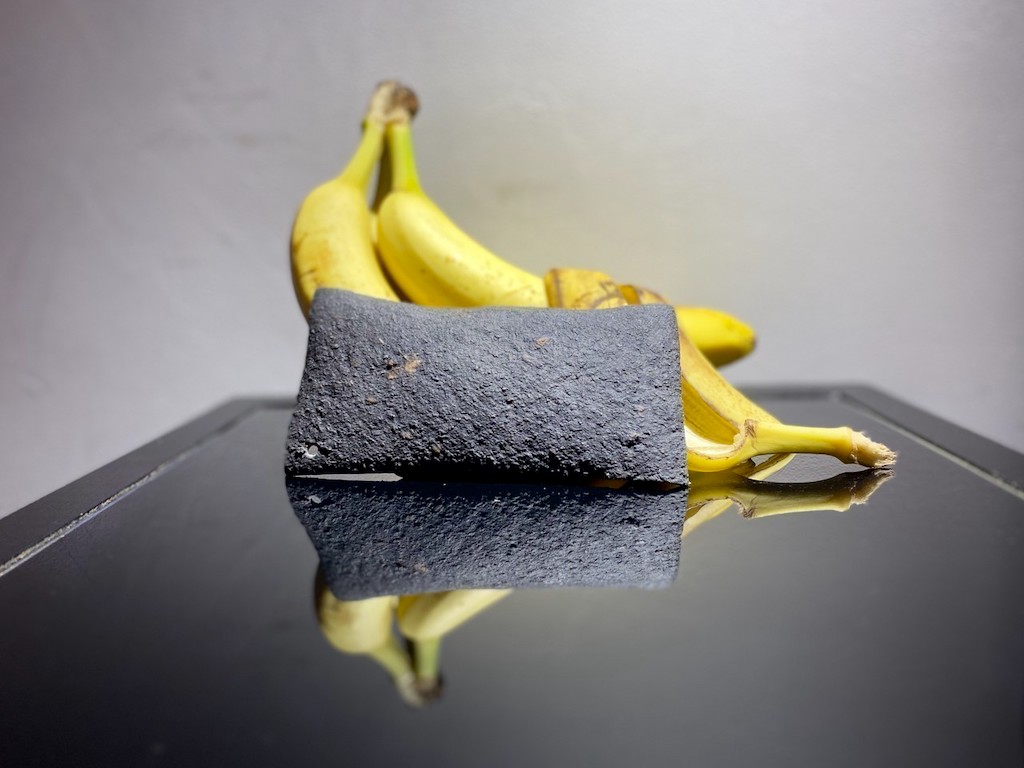3 Mins Read
There’s now another vegan leather alternative in town. After realising the impact of livestock farming, a couple from the northern town of Wattrelos decided to create Vegskin. And they’re fighting food waste at the same time too, using up leftover mangoes and bananas to make their cruelty-free materials.
Loïc Debrabander and Anaëlle Picavet were in search of eco-friendly leather alternatives when they became inspired to create their own. They had discovered the huge footprint of leather production, from raising cattle to the polluting processes of tanning and dying. The only problem? The majority of the material substitutes on the market were made out of of plastic.
Lack of ‘clean’ vegan leather
“We were looking for alternatives to leather,” said Debrabander, in an interview with local daily newspaper 20 Minutes. “But we discovered that these alternatives were not that clean.”
With ethical fashion on the rise, brands have been turning to cruelty-free leathers made from fossil fuel-extracted plastic materials like PU or PVC. While these alternative do take animals out of the equation, plastic is the main ingredient. That means they’re not biodegradable and rely on petroleum, a carbon-intensive resource.
Debrabander and his partner are also passionate about food waste, which makes up 10% of global greenhouse gas emissions. They wanted to create something that could tackle both issues at once.
“It was our values that drove us to set up the project about a year ago,” the co-founder explained.

Read: A complete guide to natural vegan leather alternatives, from coconut to cactus
Upcycling food waste
It wasn’t an easy road for the startup to develop a completely plastic-free vegan leather material—and one that would and could use up leftover food. Initially, they experimented with beets, mushrooms, and potatoes.
“It didn’t work. [Then] with apples, we started to have something convincing,” said Debrabander. After dipping their toes in different types of wasted fruit and vegetables, they stumbled onto their secret sauce: bananas and mangoes.
According to Vegskin, the company uses about 100 tons of bananas to make 5,000 to 8,000 square metres of their plant-based leather. And we’re not talking about fresh, ready-for-retail bananas either. Instead, the company upcycles discards from retailers, who often throw out damaged or overripe bananas. Same with their mangoes, which would otherwise have been destined for landfill.
Vegskin
Vegskin’s material is touted as a far more sustainable alternative to cow-based hide. Not only does it eliminate emissions required from raising livestock, but it is also biodegradable. It can replace most functions that brands and consumers like about leather, such as flexibility, water-resistance, and durability.
Debrabandersays that to start with, the startup currently has plans to release Vegskin to high-end brands. Vegskin can be used to create things like shoes, upholstery, or even the interior furnishing in cars.

Alternative material innovation
As conscious consumerism takes hold, the market for alternative materials like Vegskin’s is set to boom. A recent analysis estimates that this demand will make the “next-gen” material industry into a US$2.2 billion global market by 2026.
One of the most well-known players in the space is Bolt Threads; it makes vegan leather out of mushrooms. It has already gained the backing of names like Kering and Adidas.
Some startups have taken the same route as Vegskin to upcycle food into new materials. Vegea, for instance, makes their purple-coloured material out of grape skins and seeds discarded from wine production.
Lead image courtesy of Vegskin.




